Farmers and other agriculture professionals welcomed a busload of stakeholders and elected officials for the Greene County Commission’s 8th annual ag tour on Sept. 8.
The ag tour was launched in 2015 by the University of Missouri Extension Greene County office at the request of then-Presiding Commissioner Bob Cirtin, who grew up in an urban area and sought to learn about the agriculture industry. Decisions by the county commission could impact farmers, according to MU community development specialist and event organizer David Burton.
The tour “showcases the variety of agricultural enterprises in the county,” alternating between the eastern and western side of Greene County. This year, the ag tour was on the eastern side, with three of the five locations near Fair Grove.
“Every year I say it is the best lineup of tour stops we have ever had and honestly, I would say that again this year, because of the diversity and uniqueness of these stops,” Burton said. “It all points to the value and impact of agriculture in this county.”
The first stop was at the agriculture education facility at the recently-renovated Hillcrest High School. Just four years old, Springfield Public Schools’ first ag program has seen a surge in popularity, with classes at capacity and a waitlist to get in, according to teacher and Future Farmers of America advisor Jim Criger.
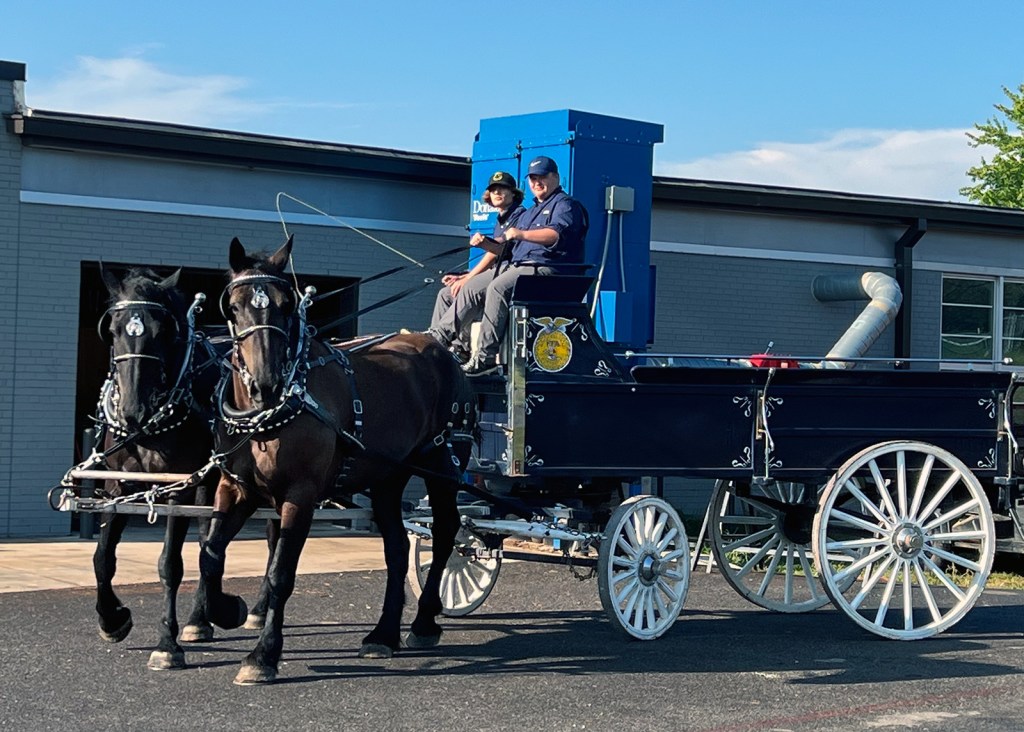
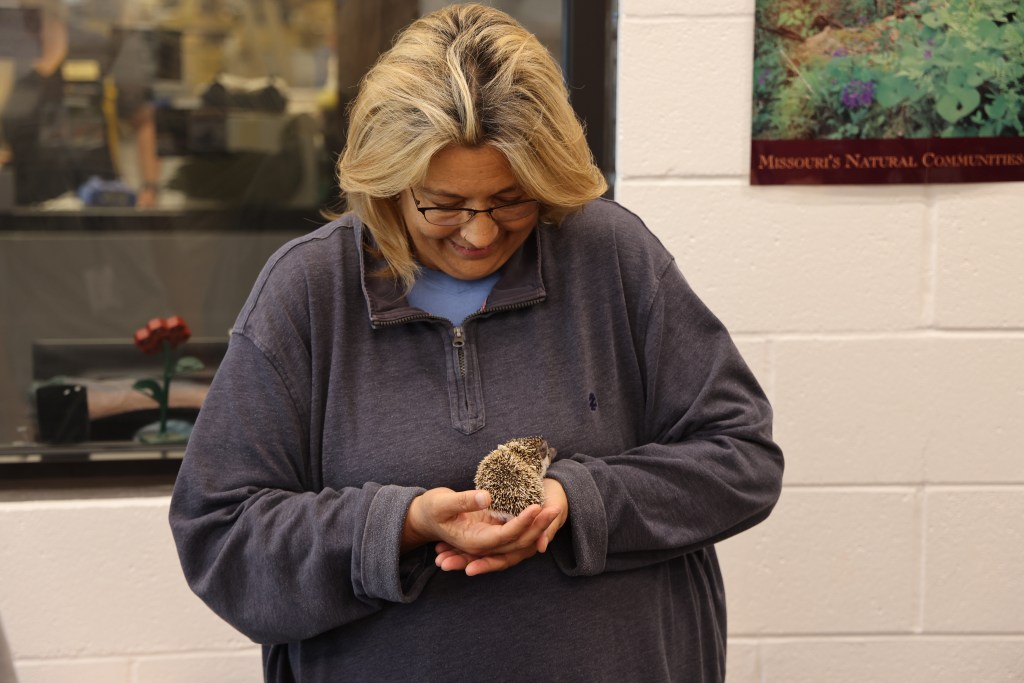
Notably, Criger said that the majority of his students live in urban areas, even though many of Hillcrest’s students live in rural parts of the Springfield school district. Criger touted the current crop of ag students, as well as some recent Hillcrest graduates’ next step towards a career in agriculture. The program offers a variety of different courses, including in ag construction, heavy equipment operations and veterinary sciences, in which students have learned about genetics and heredity by breeding hedgehogs.
Recently, in trying to determine the Hillcrest ag program’s identity, Criger brainstormed a shop project for one of his classes.
“I thought, ‘Well, we’ll build a wagon in shop class.’ I thought that’d be cool, and the kids, they didn’t think that was enough. They said, ‘Well, why are we building a wagon if we don’t have horses to pull the wagon?'” Criger said. “And I said, ‘Well, I guess I better buy you all some horses then.'”
The second stop of the ag tour was at Primatara, the Low family estate which boasts hundreds of acres of well manicured lawns and landscaping, a mansion, fields of Kentucky bluegrass and horses being trained for races around the world.
Fair Grove locations highlight history, cattle production
The entourage then toured a Greene County historic site, the Wommack Mill in Fair Grove. The mill, owned by the Fair Grove Historical and Preservation Society, was built in 1883 and operated until 1969.
Dan Manning walked attendees through the rich history of the mill, which has gone by several names over its lifetime, and its important agricultural role in Fair Grove. The mill served multiple purposes, having operated as a steam mill, as well as a flour and corn feed mill.
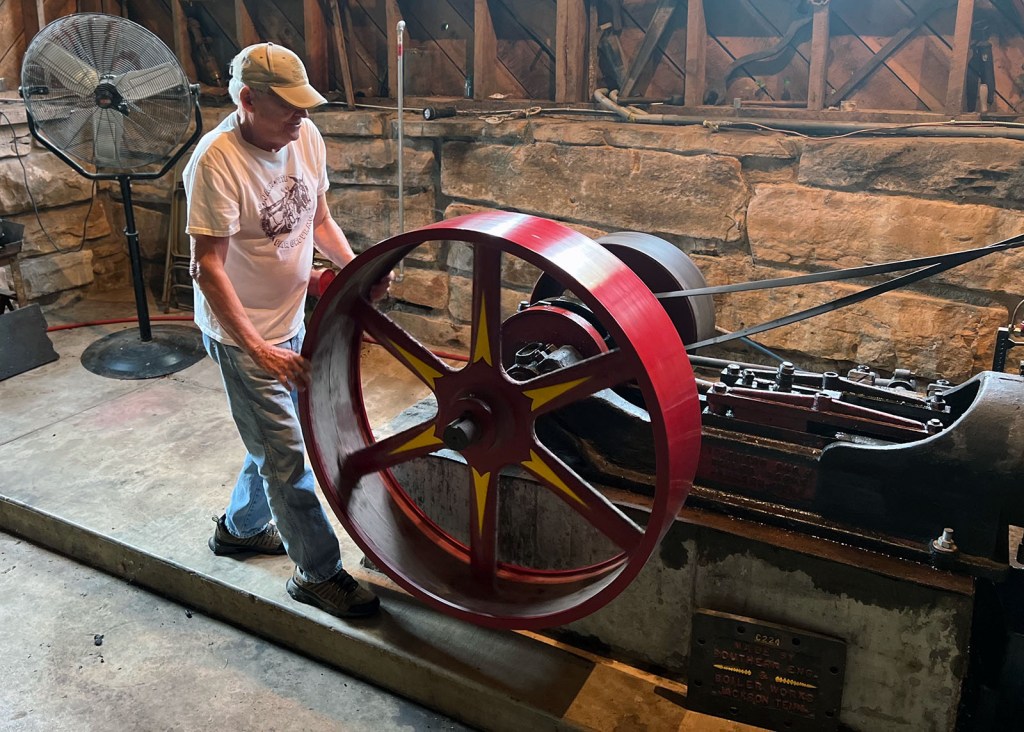
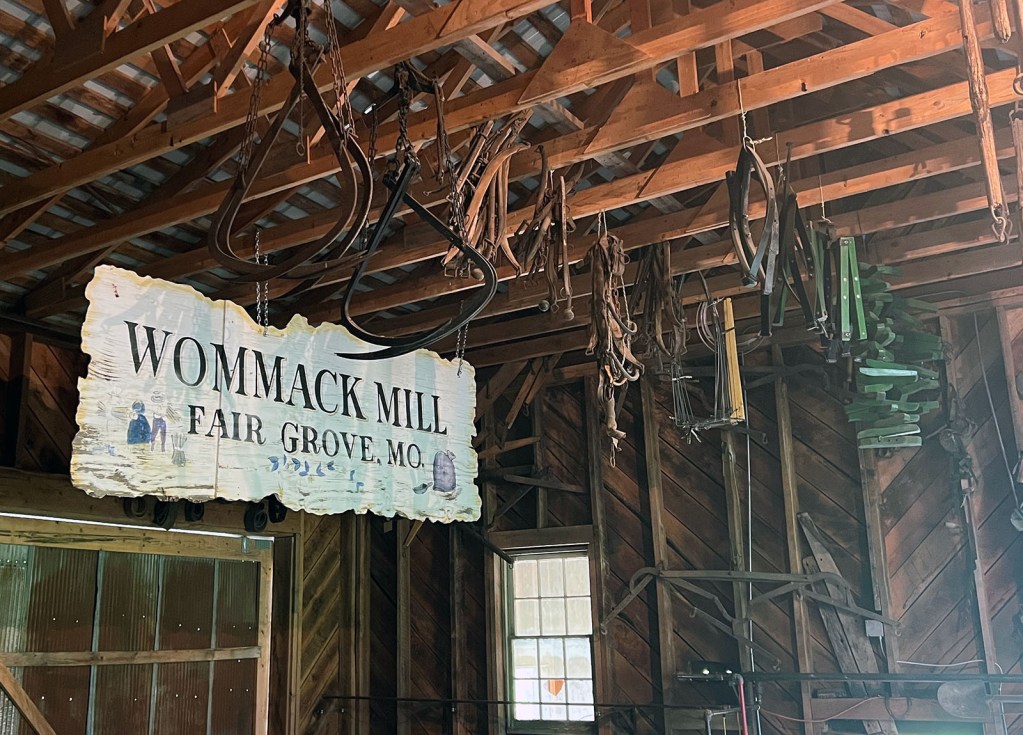

Manning, well-versed and enthusiastic about the history of the mill, said it was a “piece of junk” when the Historical and Preservation Society bought it in 1984. However, they have made renovations to shore up the building's structural integrity, while maintaining its historical accuracy.
The mill continues to house the parts and equipment that played a part in its history, which has become a popular attraction near downtown Fair Grove.
The second leg of the ag tour highlighted Greene County’s cattle industry at CAT Cattle Company and Mason Hartley Feedlot and Grazing System.
CAT Cattle Company, operated by Tanner and Cassie Dowling, breeds different types of cattle for farms across the country and sells its own beef. The farm operations are in addition to Tanner and Cassie’s day jobs, though they receive help from their two children.



With their breeding program, the Dowlings aim to produce premier genetics through embryology, and use in vitro and artificial fertilization to breed specific types of cows for specific purposes.
Tanner and Cassie Dowling showed off their laboratory and livestock, educating the commissioners on the intricacies of embryo production. They emphasized the important role youth play in agriculture.
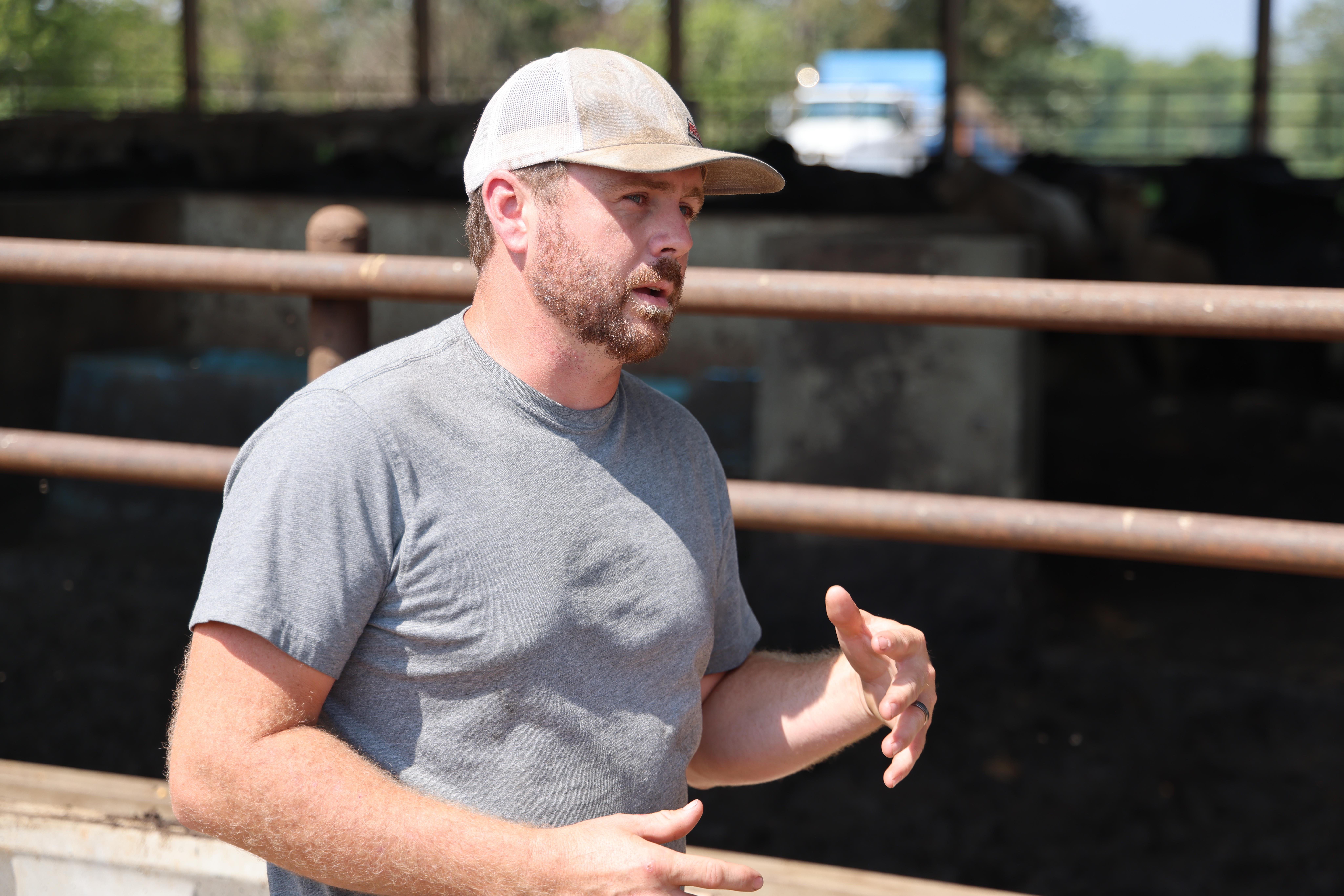
The Mason Hartley Feedlot and Grazing System is also a family-owned operation. Mason Hartley oversees 900 head of cattle on 260 acres near Fair Grove. Hartley walked the tour group through the recently constructed facilities and the farm’s rotational grazing system and cattle feeding operations.
While expressing understanding for their need and purpose, Hartley also urged regulations on the agriculture industry be scaled back, pointing to the costly burden some regulations have placed on his farm.
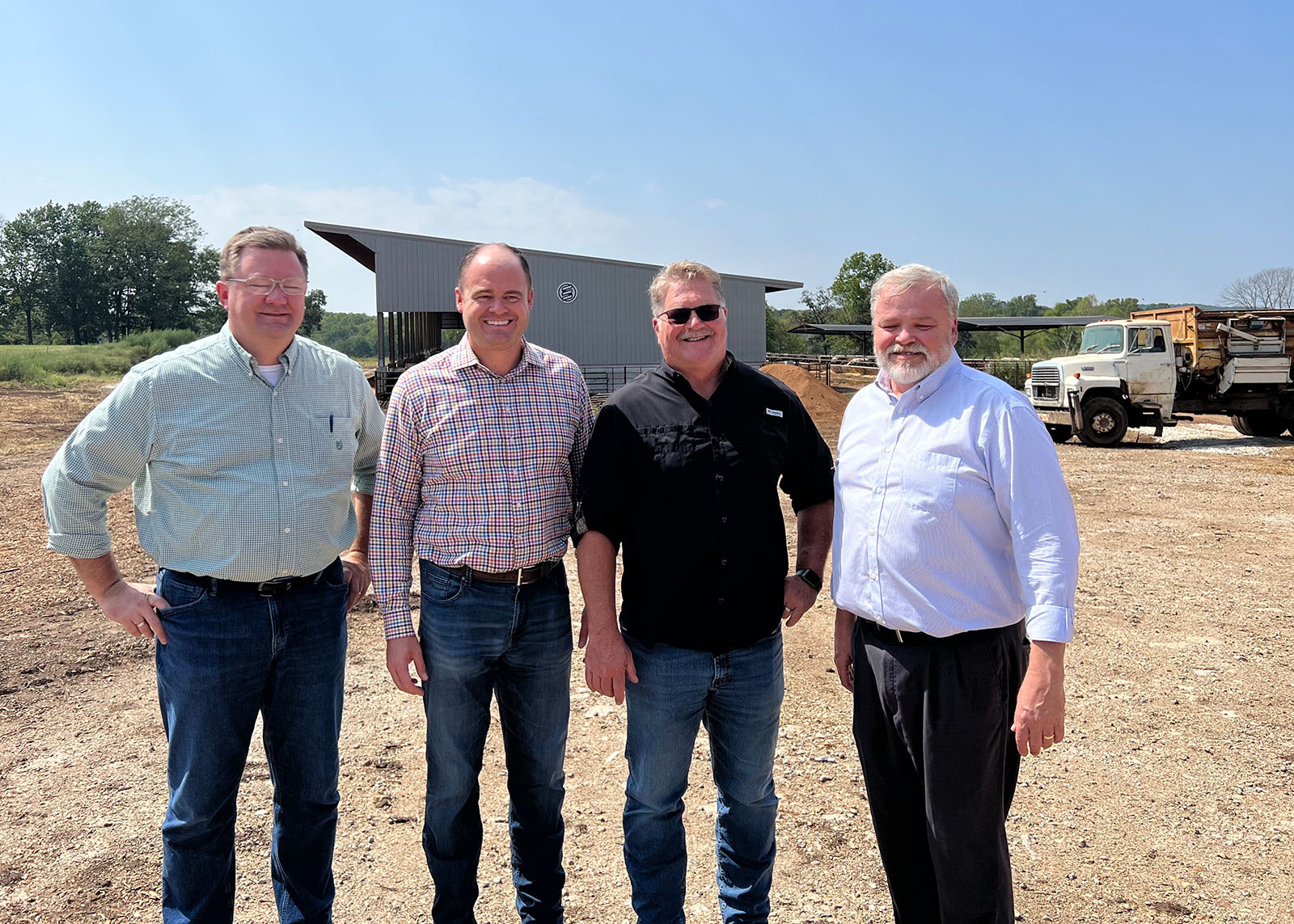
“Like everything, it is down to the pennies per day,” Hartley said. “We have to watch everything and hope to squeak by with a profit and not a loss. It is tricky.”
Understanding the “hardships and hurdles” of farms and other agricultural businesses in Greene County is important to Commissioner Rusty MacLachlan, who, like Bob Cirtin, said he wants to get a sense of how their decisions might potentially affect those businesses.
“Agriculture is one of the top industries in Greene County,” Commissioner John Russell said, concurring with MacLachlan. “So, for us, it's really helpful to get out and see the diverse agriculture operations, whether that's a cattle operation or an agribusiness and we'd like to see a variety each year so we can really get a sense of what's actually going on in our county, in our community.”

